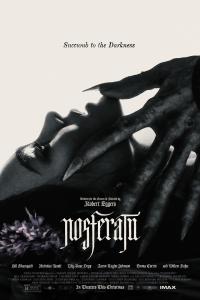Torrent details for "Dohnanyi - Ruralia Hungarica, Humoresken in Form Einer Suite - Valentina Toth (2018) [24-96]" Log in to bookmark
Controls:
Language:
 English
EnglishTotal Size:
951.89 MB
Info Hash:
91a6edcbb59f7ca6585cfb32a3cc2ef96317f2e8
Added By:
Added:
06-02-2022 20:55
Views:
351
Health:

Seeds:
0
Leechers:
0
Completed:
67


Artist: Valentina Tóth
Title: Ernő Dohnányi: Ruralia Hungarica / Humoresken in Form Einer Suite
Year Of Release: 2018
Label: Challenge Classics
Genre: Classical
Quality: flac 24bits - 96.0kHz + Booklet
Total Time: 01:03:11
Total Size: 951 mb
Tracklist
01. Ruralia Hungarica, Op. 32a: I. Allegretto, molto tenero
02. Ruralia Hungarica, Op. 32a: II. Presto, ma non tanto
03. Ruralia Hungarica, Op. 32a: III. Andante poco moto, rubato
04. Ruralia Hungarica, Op. 32a: IV. Vivace
05. Ruralia Hungarica, Op. 32a: V. Allegro grazioso
06. Ruralia Hungarica, Op. 32a: VI. Adagio non troppo
07. Ruralia Hungarica, Op. 32a: VII. Molto vivace
08. Humoresken in Form einer Suite, Op. 17: I. Marsch. Allegro moderato
09. Humoresken in Form einer Suite, Op. 17: II. Toccata. Allegro molto
10. Humoresken in Form einer Suite, Op. 17: III. Pavane mit Variationen. Allegro, quasi Andante
11. Humoresken in Form einer Suite, Op. 17: IV. Pastorale. Andante con moto
12. Humoresken in Form einer Suite, Op. 17: V. Introduction und Fuge. Allegro
13. Pastorale on a Hungarian Christmas Song
Bartok, Kodaly and Erno Dohnanyi (who often used his German nameErnst von Dohnanyi) are the three great composers of twentieth-century Hungary. Dohnanyi’s piano music is both rooted in late Romanticism and is especially connected to Brahms and with Hungarian folk music. After a critically acclaimed disc devoted to Bartok and Kodaly, Valentina Toth performs works by the last composer of the great Hungarian triad. Valentina Toth remarks: “Although they were not musically trained, my parents taught me to love Bartok and Kodaly. I treasured their music from the time I was young, and only became acquainted with Dohnanyi’s work much later, when I came in contact with it by accident. It was romantic, virtuoso and incredibly well written for the instrument. What more can you ask as a concert pianist? And although he may only seem rather less distinctly Hungarian than Bartok, many aspects of his country are reflected in his work. I remember when I was working on the Ruralia hungarica, my father recognised many of the melodies
from the songs he had learned as a boy.” As a composer, Dohnanyi, whose oeuvre mainly consists of piano music, deep in his heart always remained a musician grounded in nineteenth-century Romanticism. Dohnanyi wrote Ruralia hungarica in 1923 and gave it a real Hungarian touch by including a wide range of folk melodies in all movements. The Humoresken Op. 17 from 1907 date from when he taught in Berlin. They are basically romantic in nature and now and then reminiscent of Brahms’s piano music. As the name suggests, these are more or less light-hearted character pieces, in which he draws on musical forms from the eighteenth century. ”It is beautiful how Valentina Toth makes great art from this close to folk music leaning miniatures”. - Klara Radio










































